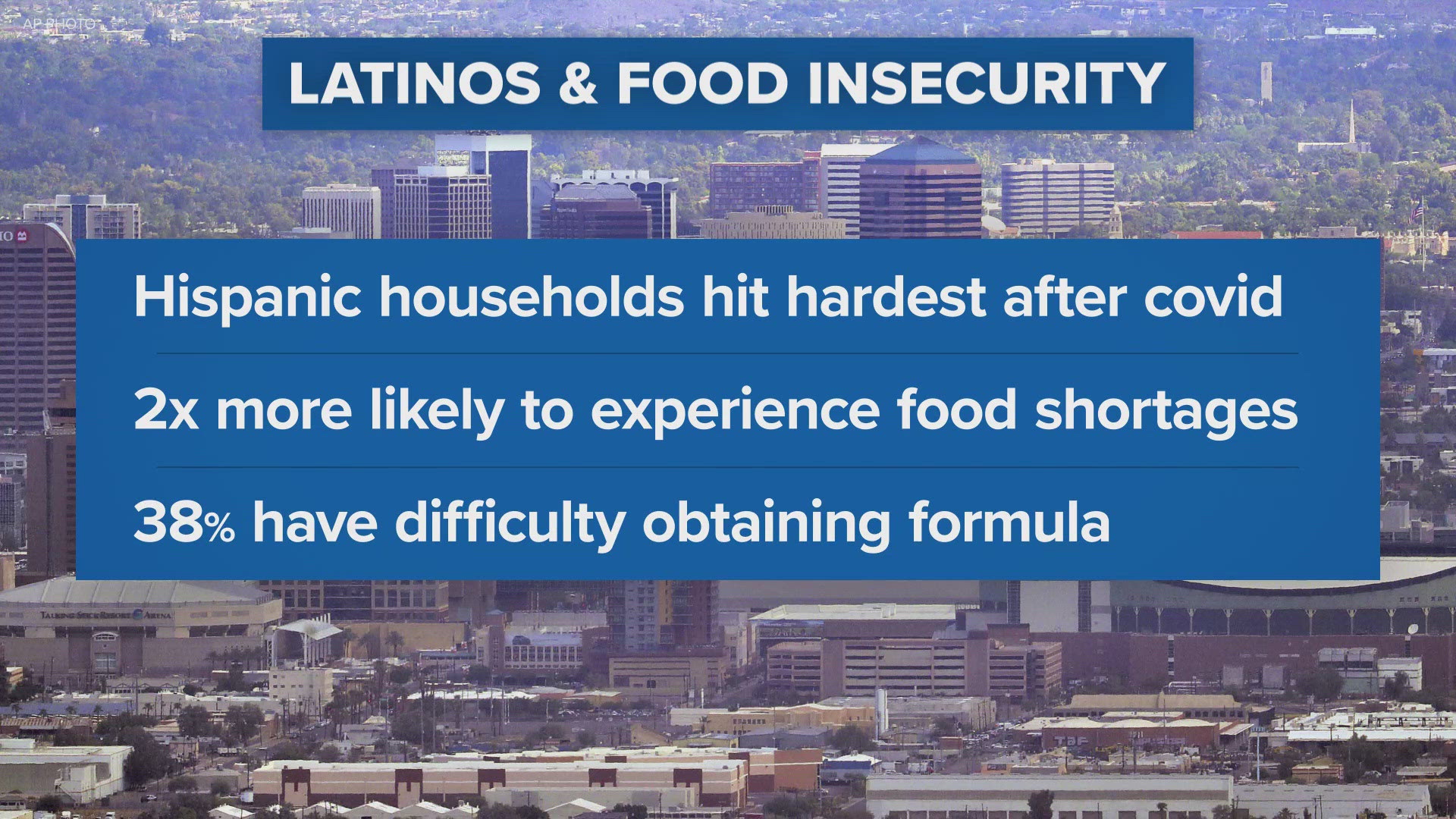PHOENIX — Latino business leaders are noting gains made by Arizona entrepreneurs while warning about ongoing troubles with food insecurity. The Hispanic Chamber of Commerce released findings Thursday at the 28th Annual “DATOS: The State of Arizona’s Hispanic Market 2024”.
Chamber CEO Monica Villalobos decried a lack of accessible, fresh foods for Latino households.
Hispanic households experience higher rates of food insecurity
“No one should be going hungry, in this day and age, and certainly not in Arizona,” Villalobos said.
The report detailed the following findings:
- Hispanic households were the hardest-hit demographic after the pandemic
- Latinos in the US are two times more likely than the general population to experience food shortages
- 38% of Hispanic households have difficulty obtaining baby formula, the highest percentage of any demographic
“This is a systemic issue and we need to talk about it more,” Villalobos said. She said solutions include citrus programs and services the St. Mary’s Food Bank offers.
“I think we really need to take a step back and change our public policies about food,” Villalobos said.
'We need to be laser-focused on K-12'
The report also notes Arizona’s poor rankings on K-12 per-pupil funding, and a recent survey just ranked Arizona the worst state in the country for public education. Nearly 50% of K-12 schools are now made up of Latino students. Villalobos told 12News that research shows schools with higher percentages of Latino students are more likely to have failing state rankings.
“We need to be laser-focused on K-12,” Villalobos said.
She stopped short of criticizing the state legislature’s record on school funding. 12News asked Villalobos if the chamber will formally ask the legislature for more funding for public school districts.
It is a position Democrats took during the last legislative session and Republicans opposed. Some Republicans wanted to provide raises for teaching positions only and other Republicans supported no increases in funding. Ultimately, the legislature’s compromise led to cuts for a low-income student program beginning next year and it fell short of providing increased funding to keep up with inflation.
“The last numbers I saw we spend about $8,000 per student in Arizona and $24,000 per prisoner. Imagine if we flipped that,” Villalobos said.
Latinos & economic prosperity
The event was also a celebration of progress.
Wealth in Hispanic households has more than tripled in the last decade, according to the report. From 2018 to 2023, Latino-owned businesses in Arizona also grew 34%.
Lauren Parra, who was in attendance Thursday, owns a children’s therapy clinic she started two years ago with another therapist.
“At ASU, I was the only Latina in my College of Speech and Hearing Science,” Parra said.
Lauren’s story is a reminder of obstacles minorities may encounter in the workforce.
“When I was looking for property, commercial real estate agents, they wouldn’t take me seriously,” Parra said. “I have a business partner. She is older than me. She is a white woman. She’s amazing. She almost was like that face for them. That was the biggest challenge that I had.”

